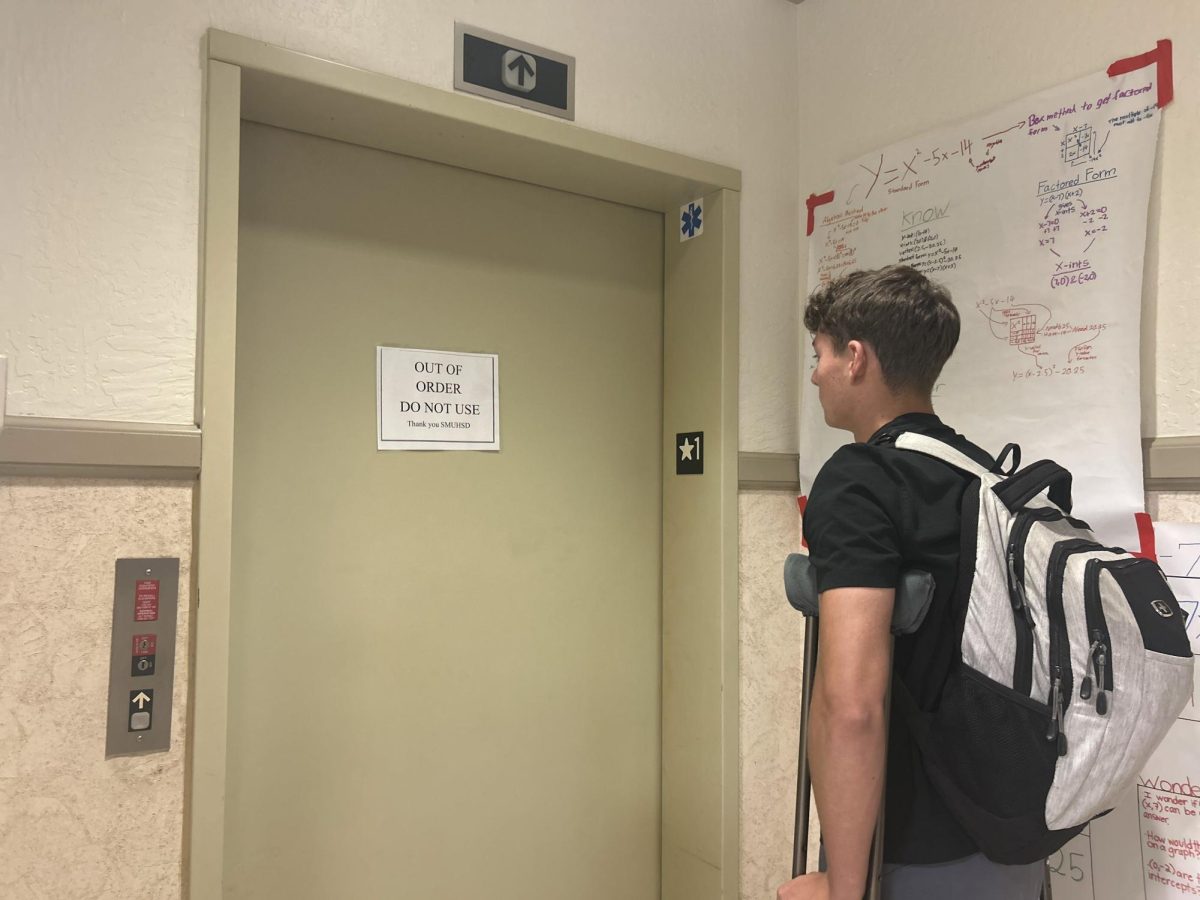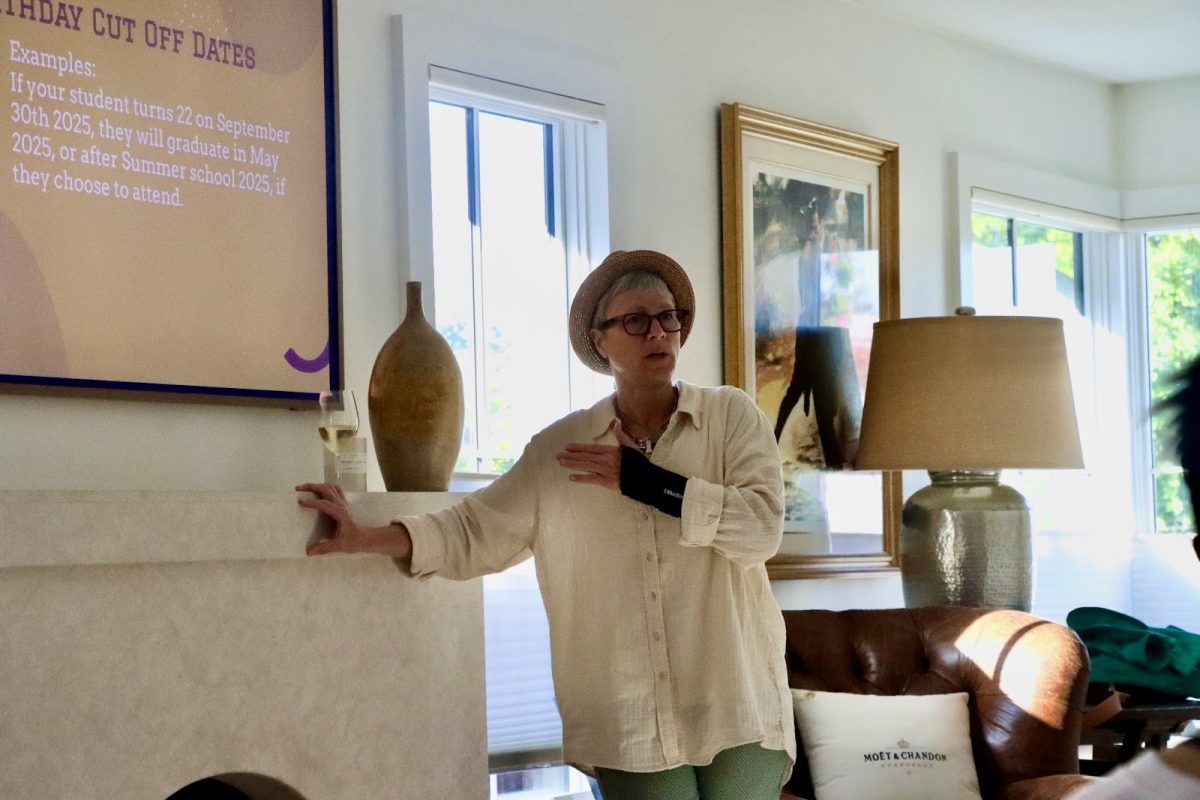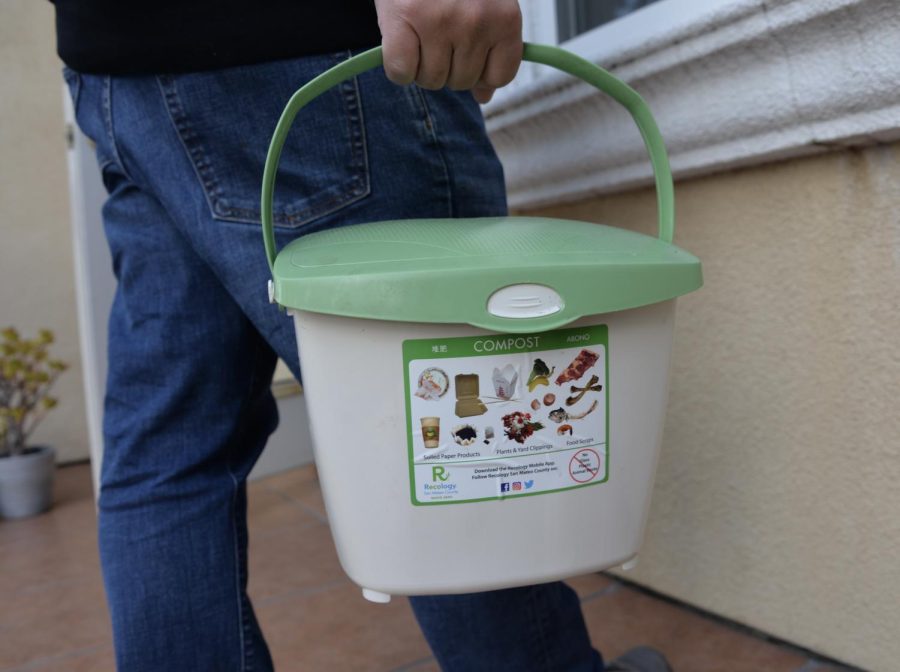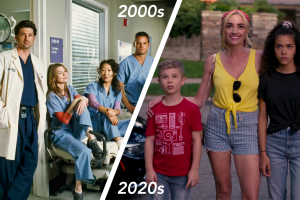New California composting mandate aims to free up landfills, combat climate change
The Recology composting program is providing single and multifamily homes in Burlingame with green bins.
February 10, 2022
On Jan. 1, California implemented the first stage of a multi-level initiative to divert organic waste from landfills.
Senate Bill 1383 states that residents, businesses and state-run schools are mandated to “prevent, reduce the generation of and recycle organic waste,” according to California’s Department of Resources Recycling and Recovery (CalRecycle).
In San Mateo County alone, 71% of the waste thrown in landfills are organic, biodegradable items such as food scraps. The central purpose of the law is to reduce the amount of food scraps in landfills, which decompose and release potent greenhouse gasses like methane.
“When people don’t compost, most of their [food waste] goes into landfills,” said Karen Hartmann, an environmental science teacher. “So if we’re able to shrink the amount of items that go into landfills and repurpose them for composting, it can be used for things like agriculture.”
For students, the idea of having yet another bin to sort waste into at school and at home may be daunting. Bethany Li, an English teacher and the district sustainability coordinator for the San Mateo Union High School District Sustainability Committee works alongside facilitators to implement a tri-bin waste system on campuses.
“Adults should do their job in providing bins and labeling them clearly,” Li said. “That piece, partnered with assuming that people always have the potential to do better — I have total faith in our students getting on board with building that habit.”
The composting mandate will be enforced county by county with the hope that by 2024 the law will be in effect statewide. That same year, those who repeatedly fail to comply can be fined up to $500 by local jurisdictions.
“If there’s a legal implication, I think more people are likely to follow it,” said Cate Cattano, president of the Environmental Club at Burlingame. “It’s like how you always pay the parking meter, because the meter price is way less than what the ticket will cost you.”
Ultimately, not making an effort to compost will not just have financial consequences — it comes with an environmental cost as well. Li mentioned that as a student body, people must be conscious about the waste they are funneling into our community and local landfills.
“We can see those connections to how me putting my banana peel in a compost bin affects the quality of the Earth around me,” Li said.
Incentivising communities to be more mindful of how they sort their food waste is the top priority. However, targeting the root of the problem is another essential step of the process.
“I think composting will help families realize how much food they throw away, which may encourage them to only buy what they need,” Cattano said.
Increasing awareness of how communities consume and dispose of food is only the first step towards a long-term goal. The state mandate will help encourage residents to build up small, daily habits over time.
“One person is not going to have a significant impact,” Li said. “But [Burlingame has] 1,500 people, and we are all making small choices. I think that’s a measurable dent in a meaningful goal.”












































Evan Michaeli • May 10, 2022 at 8:16 am
Hi Burlingame B folks,
This article is great! Composting is a great tool in the fight against climate change and I am glad you wrote an article about the topic. Composting is a weakness here at our school and as the Environmental Club leader, we are trying all things to get students and faculty accustomed to the new system.
Also congratulations on the Best of SNO!
– Evan Michaeli, staff writer for The Gator (Brimmer and May school)